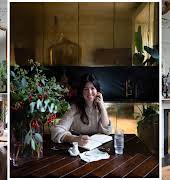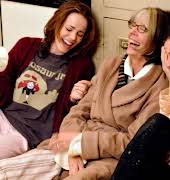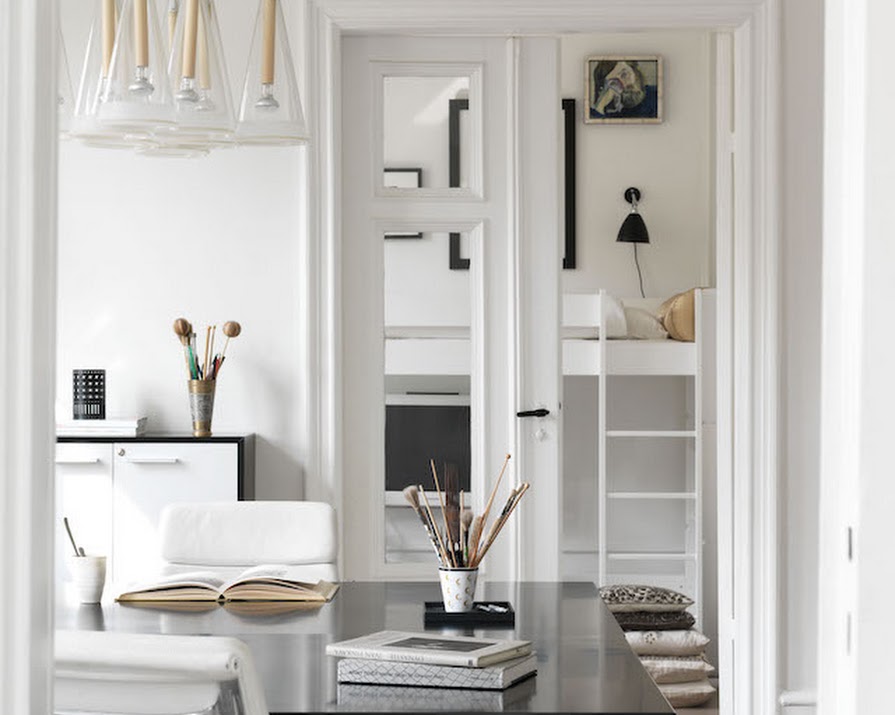By Holly O'Neill
29th Mar 2017
29th Mar 2017
In the office, a black dining table from Gubi serves as a desk, over which Flos Fucsia lights hang.
Are you a messy desk person or a tidy desk person?
At the moment I’m desk hopping but when I did have my own desk it was a well thought out curation of tranquillity, your standard basic bish Instagram flatlay desk.
I had a leafy green plant in a white pot, a fashion illustration in a silver Vera Wang frame that? Ellie, our IMAGE.ie editor gave me, a reed diffuser, marble effect folders, perfectly placed stacks of IMAGE mags, rose gold stationary, monochrome post-its and a permanent stock of Dairy Milk. By contrast, if you peered over the Mac computer opposite me, all you might spot to know that Ellie was there beneath the boxes and stacks of papers and coffee cups was a flash of her bangs or a Breton stripe.
When I said this to Ellie, she quoted Albert Einstein?- “If a cluttered desk is a sign of a cluttered mind, of what, then, is an empty desk a sign?”
If you were under the impression that chaos begets chaos, you are wrong – research has linked messy desks to higher salaries and studies have linked them to having a creative mind and increased productivity.
In 2013, researchers at the University of Minnesota conducted a series of experiments, the results of which were published online in Psychological Science. The results showed that working in a tidy environment influenced participants to ‘more conventional, more generous and to make healthier choices. Those working in a cluttered area tended to be more creative.
A group of college-age students were assigned randomly to spend time in adjacent office spaces, one of which was neat, the other cluttered with papers and other work-related detritus. They were told to fill out questionnaires unrelated to the study. They were told they could leave after 10 minutes and were offered an apple or a chocolate bar as they exited. Those students who sat in the orderly office were twice as likely to choose the apple than those who sat amid the mess.?When asked if they’d like to give to charity, the participants in the clean room donated more often.
In another experiment, students were placed in a messy and a neat office, and asked to suggest ideas for new ways to use ping pong balls. Students in the messy office came up with significantly more creative ideas than those in tidy offices.
In the final portion of the study, adults were given the choice of adding a health ?boost? to their lunchtime smoothie that was labelled either ?new? or ?classic.? The volunteers in the messy space were far more likely to choose the new one; those in the tidy office generally opted for the classic version.
?Disorderly environments seem to inspire breaking free of tradition,? Dr. Vohs and her co-authors conclude in the study, ?which can produce fresh insights.?Orderly environments, in contrast, encourage convention and playing it safe.”
If you are a messy desk owner I wouldn’t worry too much – if Alexander Fleming hadn’t been disgusting and mould hadn’t grown in a petri dish in his laboratory, he wouldn’t have discovered penicillin and we wouldn’t have antibiotics.
(Ellie would also like you to know that her house is very tidy and her messy life is restricted to her work landscape.)























